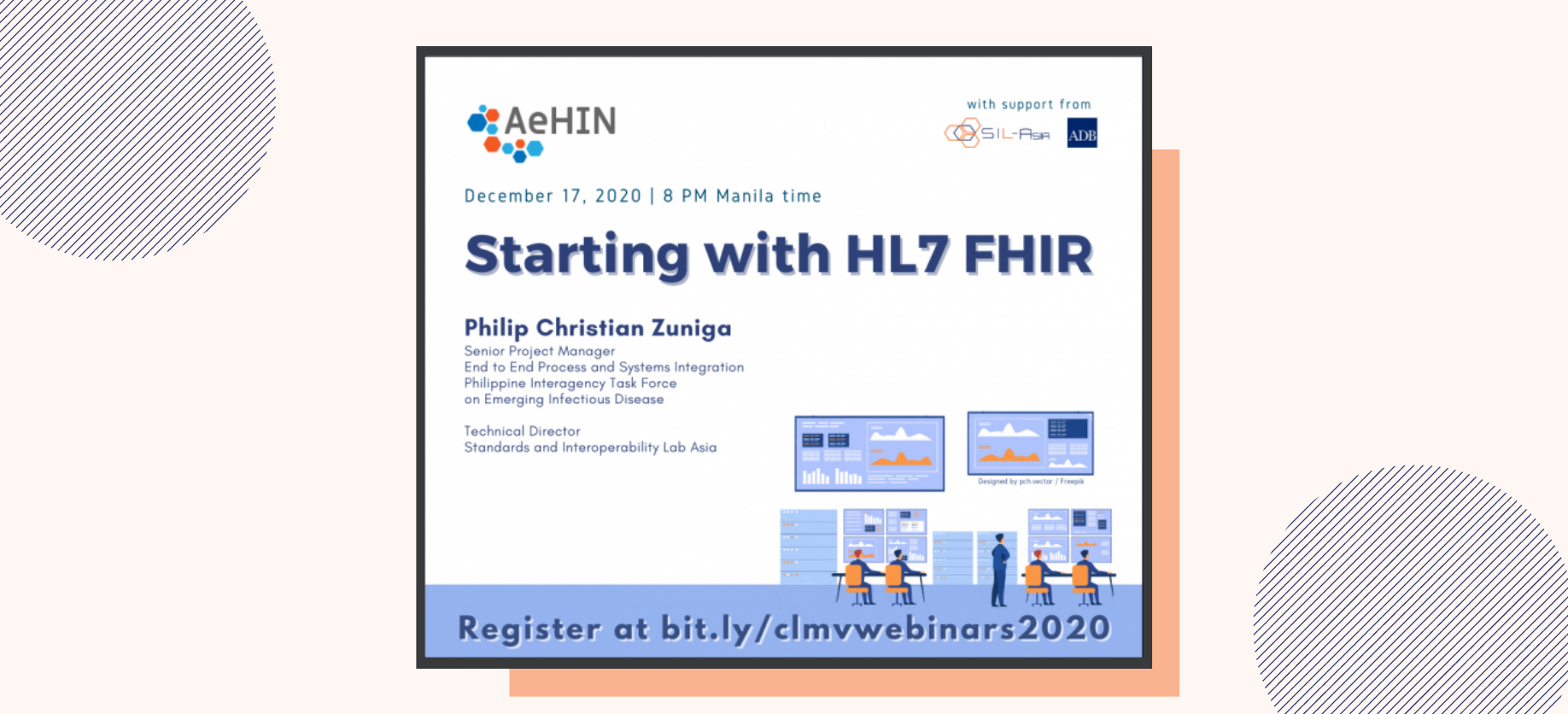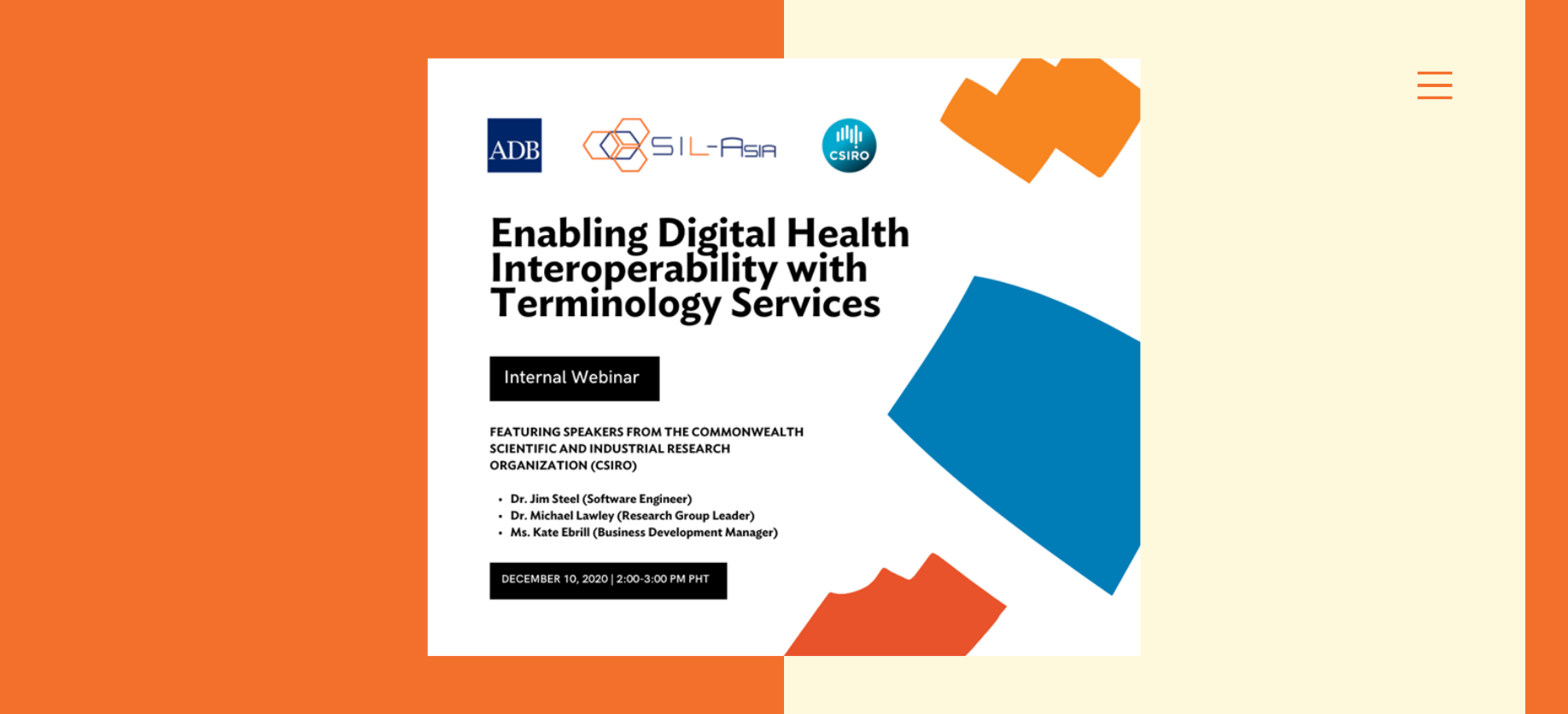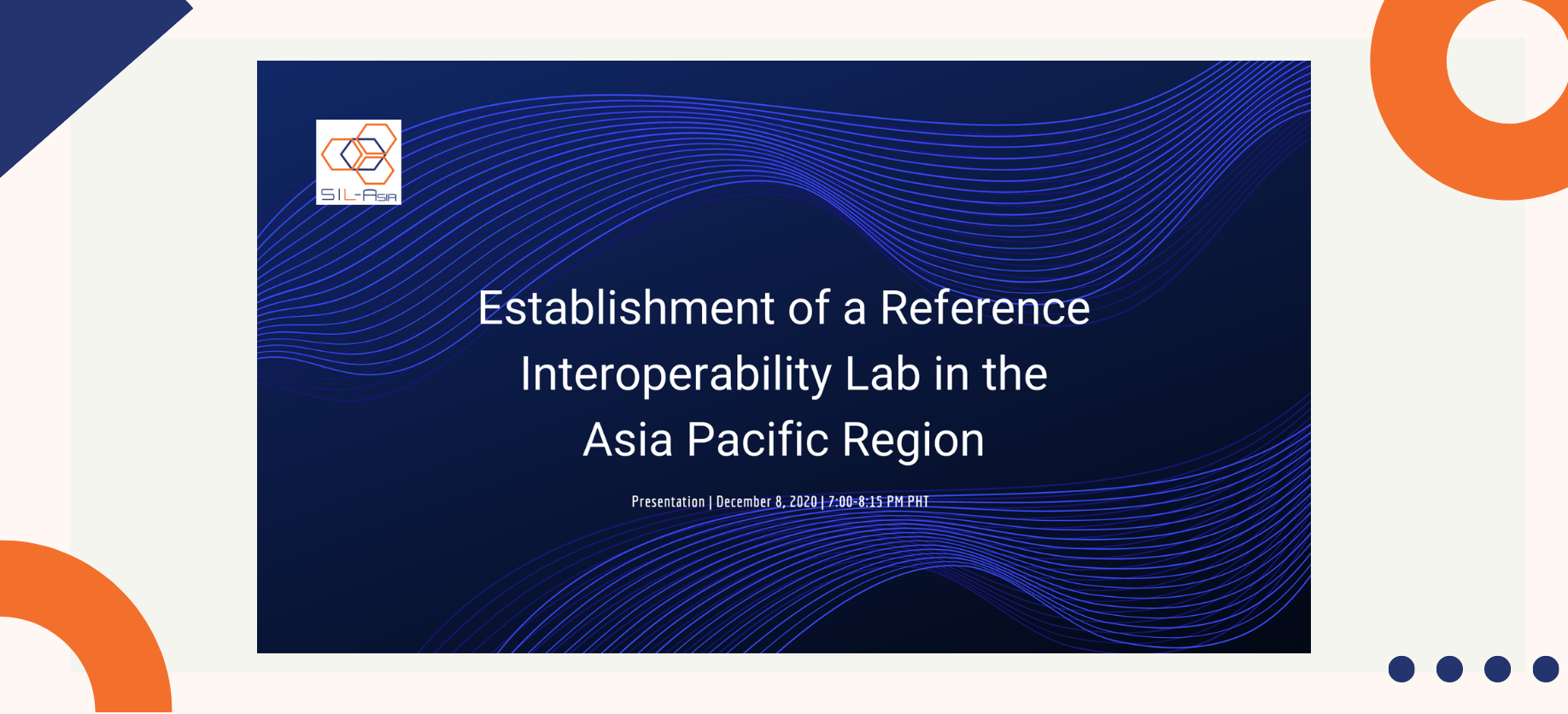QUEZON CITY, Philippines – The Standards and Interoperability Lab – Asia (SIL-Asia) conducted a Health Level Seven International – Fast Healthcare Interoperability Resources (HL7-FHIR) mapping workshop with the eHATID LGU project (eHealth TABLET for Informed Decision Making of LGUs), one of the eHealth and Community Empowerment through Science and Technology (CEST) projects of the Department of Science and Technology-Philippine Council for Health Research and Development (DOST-PCHRD) with Ateneo De Manila University last February 21, 2020.
This is the second workshop of SIL-Asia with eHATID LGU since its training with them last August 2018 on HL7-FHIR compliance. In this previous workshop, SIL-Asia focused on preparing the group to have their technology tested for compliance with HL7-FHIR. In the recent workshop, SIL-Asia concentrated on the processes that will enable eHATID to map with HL7-FHIR.
HL7-FHIR is regarded as a leading draft standard in healthcare today. Currently, the largest digital health innovation projects in the United States of America (USA) such as Cerner and Epic are implementing HL7-FHIR as a standard. It uses logical and theoretical models to make data exchange between healthcare applications consistent, easy to implement, and rigorous.
For more information, SIL-Asia’s FHIR video tutorials are available here. SIL-Asia’s FHIR server may also be accessed for testing purposes.
The concept for the Standards and Interoperability Lab – Asia was first conceived at the Regional Interoperability Workshop organized by AeHIN in Manila last August 2015 at the sidelines of the Global Health Research Forum. The regional lab was designed to serve as a template of labs in each country that will later form into the Community of Interoperability Labs (COIL).






